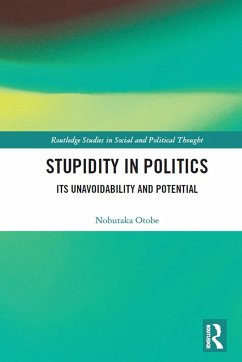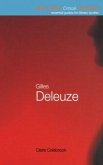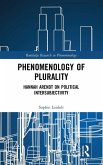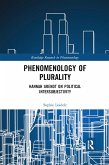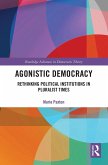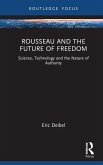Stupidity permeates our perception and practice of politics. We frequently accuse politicians, bureaucrats, journalists, voters, "elites," and "the masses" for their stupidities. In fact, it is not only "populist politicians," "sensational journalism," and "uneducated voters" who are accused of stupidity. Similar accusations can be, and in fact have been, made concerning those who criticize them as well. It seems that stupidity is ubiquitous, unable to be contained within or attributed to one specific political position, personal trait, or even ignorance and erroneous reasoning
Undertaking a theoretical investigation of stupidity, this book challenges the assumption that stupidity can be avoided. Otobe argues that the very ubiquity of stupidity implies its unavoidability-that we cannot contain it in such domains as error, ignorance, or "post-truth." What we witness is rather that one's reasoning can be sound, evidence-based, and stupid. In revealing this unavoidability, he contends that stupidity is an ineluctable problem not only of politics, but also of thinking. We become stupid because we think: It is impossible to distinguish a priori stupid thought from upright, righteous thought. Moreover, the failure to address the unavoidability of stupidity leads political theory to the failure to acknowledge the productive moments that experiences of stupidity harbor within. Such productive moments constitute the potential of stupidity-that radical new ideas can emerge out of our seemingly banal and stupid thinking in our daily political activity.
Undertaking a theoretical investigation of stupidity, this book challenges the assumption that stupidity can be avoided. Otobe argues that the very ubiquity of stupidity implies its unavoidability-that we cannot contain it in such domains as error, ignorance, or "post-truth." What we witness is rather that one's reasoning can be sound, evidence-based, and stupid. In revealing this unavoidability, he contends that stupidity is an ineluctable problem not only of politics, but also of thinking. We become stupid because we think: It is impossible to distinguish a priori stupid thought from upright, righteous thought. Moreover, the failure to address the unavoidability of stupidity leads political theory to the failure to acknowledge the productive moments that experiences of stupidity harbor within. Such productive moments constitute the potential of stupidity-that radical new ideas can emerge out of our seemingly banal and stupid thinking in our daily political activity.
"Otobe weaves together textual analysis of various thinkers such as Deleuze, Kant, and Kobayashi, to lay bare the taken-for-granted habits in our tradition: political judgements based on exogenous source of standard, the dichotomous view of the solitary realm of thought and the plural realm of political judgment, and most importantly, the separation between the realm of righteous thinking and the realm of politics. By laying these habits bare, Otobe persuasively argues how the two realms are inseparable... Understanding the otherness in thought and plurality of politics, the book demonstrates that taking the problem of stupidity as inherent problem is the most urgent task and possibility for democratic political theory. The book successfully problematizes the problem of stupidity in a fresh way, including the discussions of the role of common sense and recurring cliché in democratic society."
--- Reviewed by Professor Shigeki Uno (University of Tokyo), in Japanese Journal of Political Thought, 2022.
--- Reviewed by Professor Shigeki Uno (University of Tokyo), in Japanese Journal of Political Thought, 2022.

